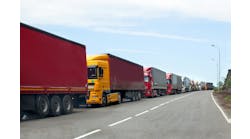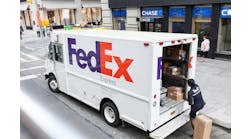The new Kentucky ground hub replaces an older one near the airport, making room for expansion of the company’s global air hub. On the ground, the carrier’s heavy freight division has enhanced upgraded delivery for more than 1,200 traffic lanes.
The new 258,390-sq-ft sorting and distribution center, called the Louisville Centennial Hub, is an expansion and relocation of the ground operations that had been located on land adjacent to Worldport, the UPS global air hub. The move now permits Worldport to grow.
One of two sorting facilities in the Louisville area, it houses 180 delivery vehicles with room for expansion. "This new center allows UPS to continue providing the level of service our customers expect. Our business in Kentucky continues to grow and we are excited about utilizing this new, larger facility," says Kentucky District Manager Judy Henry.
Transit time improvements by UPS Freight have come with new two-day lanes with cargo originating in Cleveland, Indianapolis, Milwaukee, New York City and Newark. They join recently enhanced two-day lanes including Chicago to Dallas, Boston to St. Louis and Philadelphia to Miami. Next-day deliveries are also upgraded for shipments from Cincinnati to Memphis and Columbus to Charlotte.
Speaking of the upgrades, UPS Freight president, Jack Holmes, explained, “With the economy still in the doldrums, diesel prices rising to record levels and capacity issues emerging in the trucking industry, shippers need the guaranteed transportation services and technology tools provided by UPS to successfully run their businesses.”
Other recent United Parcel Service (UPS) articles:
- UPS Launches Import Finance Group
- Conference to Address Environmental Compliance
- UPS Restoring Service After Gustav
View more Logistics Services news from Outsourced Logistics.


